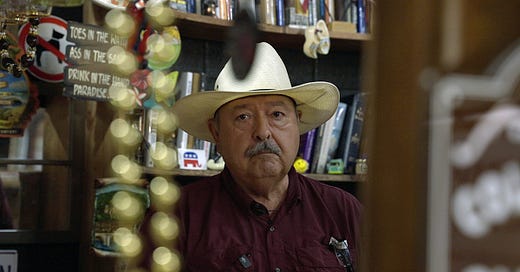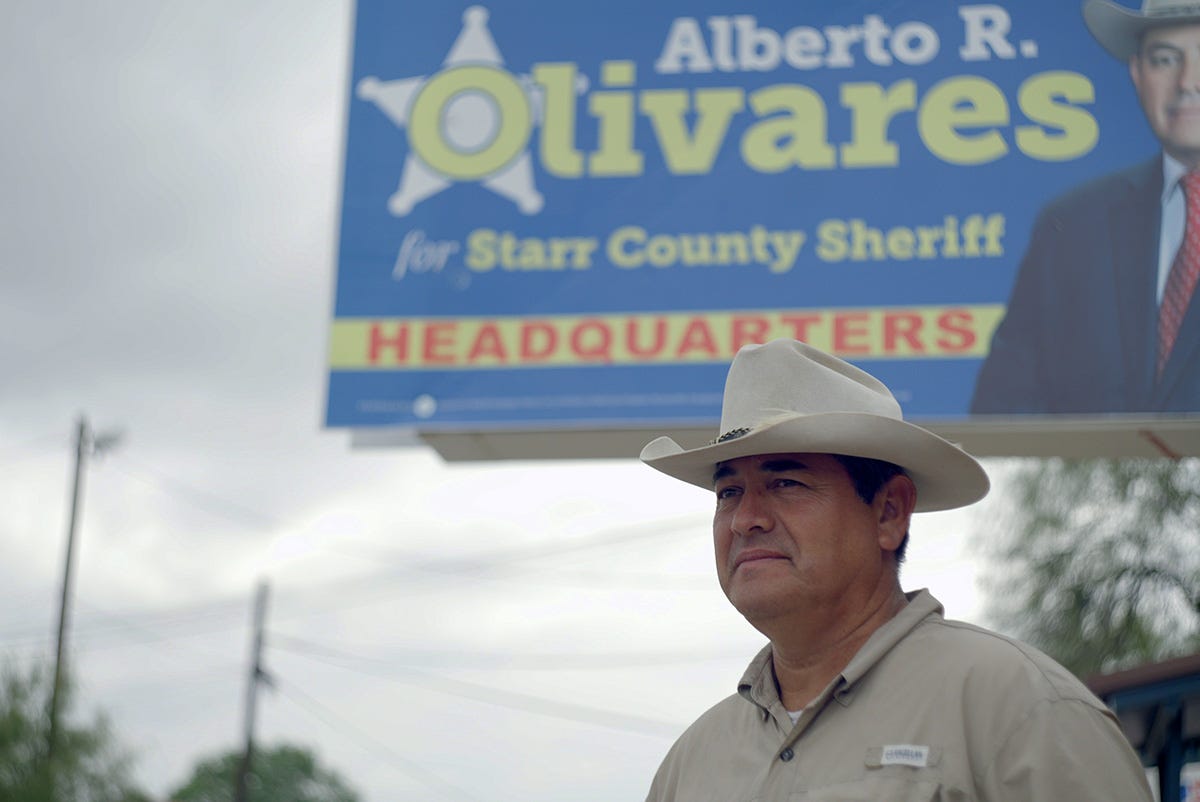
STARR COUNTY, Texas — Alberto Olivares is a fourth-generation Tejano who worked for Customs and Border Patrol for 26 years. He’s also been a Democrat most of his life.
“I was a Democrat because I was told I was,” said Olivares, a square-jawed 54-year-old in a cowboy hat and boots. “I didn’t want to be different than my parents and my brothers and my sister.”
But he said he was so turned off by what he saw as President Barack Obama’s failure to support law enforcement that he switched parties. “I had to deal with the feeling of divorcing my family,” he told me over a Coca-Cola in Rio Grande City, the seat of Starr County. This year, he became the first person, as far as he knows, to run for local office as a Republican here since the 1880s.
During his campaign for county sheriff he was careful not to mention Donald Trump, fearing an association with the former president could hurt him in this traditionally Democratic area. But, he said, voters kept bringing up Trump themselves, telling Olivares how much they liked the billionaire from Queens. I saw this myself more than once when I heard drivers honk their horns in town at trucks waving flags for Trump.
A tectonic transformation is underway in the Rio Grande Valley, which is a reflection of what’s happening nationally. “The GOP is what the Democrats used to be,” Olivares said.
Starr County is almost 100 percent Latino. In years past, that should have made it a lock for Democrats, and for generations, it was. “Los Democratas hacen por los pobres. That’s their catchphrase,” said Olivares of the local party’s mantra, which roughly translates to Democrats will represent the poor. For decades, there simply was no Republican Party in the area. In 2010, when Olivares’s wife wanted to vote in a Republican primary, poll workers had to make phone calls and send her to numerous polling stations just to track down a GOP ballot.
But last week, the county flipped to the Republican Party for the first time in over 130 years, voting for Trump by about 58 percent. The last time Starr County voted for a Republican presidential candidate was in 1892, for Benjamin Harrison.




